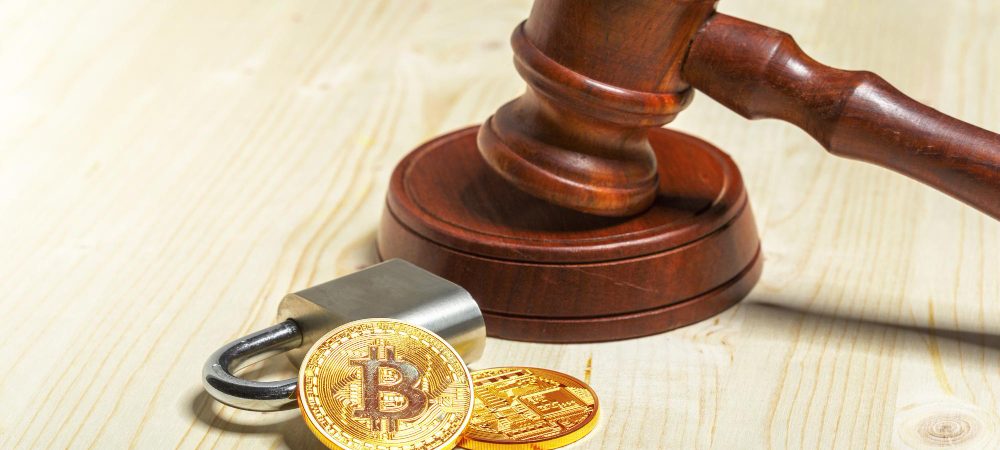What if everyone woke up to see that the current digital money rules had reversed? This is how our current situation in cryptocurrency looks like at the moment. It seems like just recently many countries implemented new rules for cryptocurrency almost overnight. If youre anything like most of us, you’re probably just wondering: Is it legal for me to either hold or trade Bitcoin in my country? What things do you need to consider when it comes to taxes, preservation of privacy, or following existing regulations? It’s not only about clarifying legal text—it tells you how changes in global crypto laws are shaping our financial life and how to maintain compliance while being a crypto user everywhere in the world.
Legality Is a Moving Target: Is the enthusiasm towards digital currencies the same across the world?
Crypto Laws: A Global Rollercoaster
Have you ever tried staying up to date with the laws regarding crypto around the world? It looks we are chasing a fleeing train. Some day, the coin you like will be accepted by the government. Then, at midnight all of half your choices instantly go away. If your portfolio seems to rise and fall, know others have gone through the same thing. Ive had my toughts in the middle of the night, reading the news and wondering if I should panic or not.
From Embrace to Banand the Blurred Region in Between
Some nations host the entire world by being very accommodating. Singapore and Switzerland are known for doing this. Theyve built clear, welcoming regulations. At the same time, shutting off the SCO system has been China’s and Algeria’s decision. But honestly? It is not true that all countries have just black and white views. They exist in the no man’s land, showing kindness at times and confusion at others.
What Is the Reason for Quick Changes in the Laws?
Such affairs as scandals, risings in the market, and political drama can all have an influence. Take India. One year, cryptos in. Next year, its out. And yet again the battle goes on, this time with modified rules. Many investors in Nigeria have been thrown off guard by recent reversals. Its exhausting, but its reality.
Special Zones: The Odd Exceptions
Heres a twist: some countries create special zones. Dubai’s DMCC is a great example of this. Even though restrictions apply at the national level, these zones find a way to make exceptions. As of 2025, more than 1,000 crypto companies have chosen to set up base at DMCC. While it may be a loophole, it is still a legitimate one.
Every couple of months, we go over and update our crypto compliance manuals, Sheila Warren, CEO, Crypto Council for Innovation
That’s why many countries, over 70, have adopted new crypto regulations in the past two years. The only constant? Change itself.
Not Just Taxes: Navigating Through the Requirements for Compliance and Reporting
Crypto Compliance: More Than Just Paying Taxes
Do you think taxes are the only considerations when it comes to cryptocurrency rules? Not anymore. If youre involved with digital assets in any way, you will now have to navigate the changed rules in the banking industry. It’s not only about talking about profits. This is simply about getting to know the customer, prevention of money laundering, and regular reporting of transactions. It is FinCEN in the US and MiCA in Europe that is spearheading the efforts.
Why Is It So Complicated?
Lets be real: the rules are a maze. Each year, theres something new. All crypto providers in the EU need to carry out KYC and AML checks from 2024 onwards, following the MiCA Regulation put into effect in 2023. At the same time, the US has made a new regulation that requires reporting any crypto transfer over $1,000. Even for little deals, there is a lot of paperwork to handle.
One Missed Deadline, Big Trouble
Not going to lie—I have sometimes missed the reporting deadline. I had to pay a fine, simply because I was late by a day. Even though it wasnt very big, it was still painful. For businesses, dealing with this is far more complicated. Fines up to $10 million can come your way if you make errors according to FinCEN 2024. It would cause anyone to think twice about their filled out forms.
Who Gets Scrutinized?
There is a noticeable gap between your and a crypto company in terms of handling your crypto. Today, companies have to face tougher regulations, mainly because of the new enforcement of the US Travel Rule. Overseeing a business will likely require you to stay up-to-date with more frequent KYC changes, real-time reporting, and intensive oversight.
Directions from the government are still unclear for most crypto users, Hester Peirce, Commissioner, SEC
Compliance isnt something you can just check off a list. It is something we face everyday and that evolves every day.
The Rise of Different Regulations Around the World
Is Crypto Really Borderless Anymore?
Youve probably heard it before: Crypto is expected to work on a global scale without any barriers. Still, when we get to 2025, it all seems more like a sales pitch than the truth. The truth? It is now much more difficult to send coins across national boundaries because of new rules and regulations. There are a variety of rules for every country—as well as for states. It’s almost as if the whole experience is trying to drive from one European nation to another, only to be stopped every time at a different checkpoint.
Cross-Border Headaches: A Quick Story
Imagine that you need to send your friend some money in crypto worth $1,000 from a different country. Simple, right? Not anymore. Depending on your current residence, you could end up with mountains of paperwork, get hit with tough taxes, or accidentally do something frowned upon by the law. The instant transfer may take weeks to pass though the legal process. Its wild, but it happens.
Why So Complicated?
The main difficult is the lack of a unified strategy. Every region or neighborhood has its own sets of rules. At the time, only 15 countries around the world had special crypto regulations for cross-border transactions. Today, 44 countries have unique set of rules, and more are being added.
There are some initiatives underway to sort this out in places. One example is the EU, as they introduced the Markets in Crypto-Assets (MiCA) law for all the 27 member states by 2025. Latin America is trying out new forms of collaborations. This procedure however, is still complicated in the US, as rules differ from state to state. Harmonization? Its a work in progress.
Borderless crypto is no longer a reality because of the current regulations, according to Michael Sonnenshein.
Hence, if you are interested in cross-border crypto, keep in mind that its not simple. It can be hard nowadays to guess how things will change, as everything happens so quickly.
Conclusion: Getting accustomed to the Legal Rules in Cryptoland
Just having a compliance system for crypto is not enough, you must keep up with it moving forward. It is a lot like a road trip, since crossing every border makes you follow a new set of driving guidelines. The driver has to respond to two contradicting instructions and keep the car safe at the same time. That is how the regulations on crypto stand in the globe in 2025.
The biggest challenge? Constant change. Laws shift fast. A law that seems legal right now may raise questions in the future. There is a difference between what cryptocurrencys’ supporters aim for and what regulators are looking for. Yet there are chances to make some if you are paying attention.
In that case, what are your abilities? Be active and create strong files that would help you in the future. Attend online meetings and talk to people who also use crypto. The best piece of advice can come from someone who has already dealt with the problems youre facing.
Dont forget: Getting used to something is a key part of our progress. Joining together and looking out for each other helps the most. If you are on top of it, you can see the changes coming. If youre not, you may have difficulties getting through the border.
The future? It might become more common to see common laws and less of the old wild west ways,if the political side can come to an agreement. For now, youre the navigator. Regularly update your map, keep an eye on road signs, and remember to ask if you cant find your way.
Kathryn Haun, CEO of Haun Ventures, said that crypto takes courage, just like how the internet was back in its early days.
Dealing with ever-changing crypto laws is much more than just a job—it is a journey. Keep learning, keep taking part, and keep growing.
TL;DR: The crypto laws around the world are changing quickly in 2025, so keeping up and observing the changes can benefit your safety and smart investing knowledge anywhere you live.



